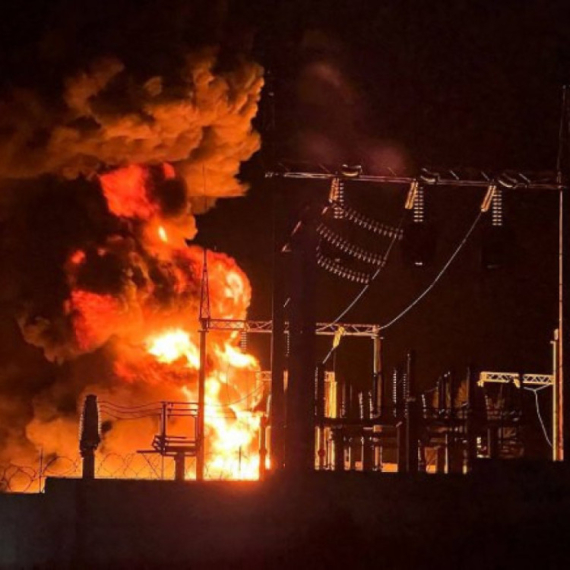Bin Laden was "within grasp" of U.S.
U.S. forces had Osama Bin Laden "within their grasp" in Afghanistan in late 2001, a U.S. Senate report says.
Sunday, 29.11.2009.
12:55

U.S. forces had Osama Bin Laden "within their grasp" in Afghanistan in late 2001, a U.S. Senate report says. It says calls for U.S. reinforcements were rejected, allowing the al-Qaeda leader to "walk unmolested" into Pakistan's unregulated tribal areas. Bin Laden was "within grasp" of U.S. The report was prepared by the Foreign Relations Committee Democratic staff. It says the failure to kill or capture Bin Laden had far-reaching consequences and laid the foundation for the protracted Afghan insurgency. The report comes as President Barack Obama prepares to announce a long-awaited decision on sending troop reinforcements to Afghanistan. It is highly critical of officials in former President George W. Bush's administration and military commanders at the time. It says that while the "vast array of American military power... was kept on the sidelines", U.S. commanders "chose to rely on air strikes and untrained Afghan militias" to pursue Bin Laden in the mountainous complex of caves and tunnels known as Tora Bora. "On or around 16 December (2001), two days after writing his will, Bin Laden and an entourage of bodyguards walked unmolested out of Tora Bora and disappeared into Pakistan's unregulated tribal area," where he is still thought to be hiding, the report says. The then U.S. Defence Secretary Donald Rumsfeld expressed concern at the time that a large U.S. troop presence in the area could provoke a backlash and he said the evidence about Bin Laden's location was not conclusive. The report says the "failure to finish the job" laid the foundation for "today's protracted Afghan insurgency and inflaming the internal strife now endangering Pakistan". It acknowledges that removing Bin Laden "would not have eliminated the worldwide extremist threat". But it adds that "the decisions that opened the door for his escape to Pakistan allowed Bin Laden to emerge as a potent symbolic figure who continues to attract a steady flow of money and inspire fanatics worldwide". The report rebuffs claims by Bush administration officials at the time that intelligence about Bin Laden's location was inconclusive. "The review of existing literature, unclassified government records and interviews with central participants underlying this report removes any lingering doubts and makes it clear that Osama Bin Laden was within our grasp at Tora Bora," it says.
Bin Laden was "within grasp" of U.S.
The report was prepared by the Foreign Relations Committee Democratic staff.It says the failure to kill or capture Bin Laden had far-reaching consequences and laid the foundation for the protracted Afghan insurgency.
The report comes as President Barack Obama prepares to announce a long-awaited decision on sending troop reinforcements to Afghanistan.
It is highly critical of officials in former President George W. Bush's administration and military commanders at the time.
It says that while the "vast array of American military power... was kept on the sidelines", U.S. commanders "chose to rely on air strikes and untrained Afghan militias" to pursue Bin Laden in the mountainous complex of caves and tunnels known as Tora Bora.
"On or around 16 December (2001), two days after writing his will, Bin Laden and an entourage of bodyguards walked unmolested out of Tora Bora and disappeared into Pakistan's unregulated tribal area," where he is still thought to be hiding, the report says.
The then U.S. Defence Secretary Donald Rumsfeld expressed concern at the time that a large U.S. troop presence in the area could provoke a backlash and he said the evidence about Bin Laden's location was not conclusive.
The report says the "failure to finish the job" laid the foundation for "today's protracted Afghan insurgency and inflaming the internal strife now endangering Pakistan".
It acknowledges that removing Bin Laden "would not have eliminated the worldwide extremist threat".
But it adds that "the decisions that opened the door for his escape to Pakistan allowed Bin Laden to emerge as a potent symbolic figure who continues to attract a steady flow of money and inspire fanatics worldwide".
The report rebuffs claims by Bush administration officials at the time that intelligence about Bin Laden's location was inconclusive.
"The review of existing literature, unclassified government records and interviews with central participants underlying this report removes any lingering doubts and makes it clear that Osama Bin Laden was within our grasp at Tora Bora," it says.


























































Komentari 5
Pogledaj komentare